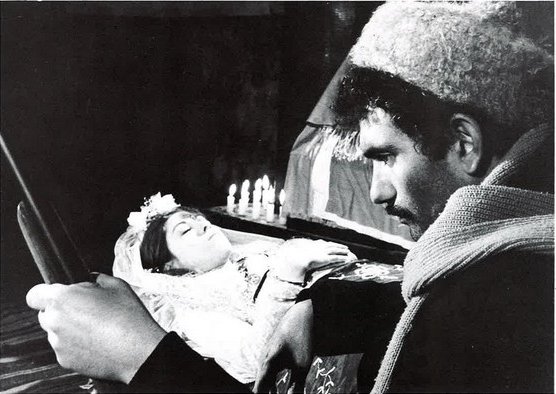May 9 – 21, 2012
Goethe-Institut
Yılmaz Güney:
Master of Euro-Asian Film Culture
"We're all somehow his
children." — Fatih Akin
“An inspiration to countless subsequent directors, including the Turkish-German
filmmaker Fatih Akin (Head-On), who has spent the last
years preparing a film about his self-declared hero, Güney drew on Italian
neorealism to make his deeply humane and passionately committed works about the
social reality of his country.” — James Quandt
Yilmaz Güney (1937–1984) is a legendary figure in
Turkish cinema. His remarkable career trajectory led him from roles as a
popular leading man to a filmmaker so politically dangerous Turkish authorities
threw him in prison. Güney and his work became more widely-known in the Western
world after his film Yol, banned in
Turkey, won a Palme d’Or at the Cannes Film Festival in 1982.
Co-presented with the Freer and Sackler Galleries, Smithsonian Institution.
Films will be shown in Turkish with English
subtitles.
Wednesday,
May 9, 6:30 pm
The Herd
(Sürü)
Turkey, 1978,
35mm, 129 min., Director: Zeki
Ökten, Screenplay: Yilmaz Güney, Cast: Tarik Akan, Melike Demirag,
Tuncel Kurtiz
The Herd has a simple premise that
it utilizes to devastating effect: the economic survival of a Kurdish family
depends on its ability to drive its herd of sheep from the mountains to Ankara.
The film follows the driving of the herd; the constant threats to the livestock
and the family serve both as a kind of ethnographic documentary and as
existential (and political) parable. Explaining to an interviewer about his use
of metaphor and allegory to express himself politically in his films, Güney
declared that the subject of The Herd
was the history of the Kurds. At the same time, he noted, the film was made in
Turkish; any public use of the Kurdish language was illegal at the time.
Wednesday,
May 16, 6:30 pm
Hope (Umut)
Turkey, 1970, 35mm, 100 min., Director: Yilmaz Güney, Cast: Yilmaz Güney, Gülsen Alniaçik,
Tuncel Kurtiz, Osman Alyanak
When one of his horses is killed in a car collision, cab driver Cabbar must
find a way to keep his large family afloat. Illiterate and in debt to many
people, the police do not help him seek justice against the car’s driver, and
he is plunged into despair until his friend Hasan suggests that they go and
find a mythical buried treasure in the desert. Bringing along a preacher for
spiritual guidance, the three men journey across the desert to retrieve the
treasure—their last remaining hope.
Followed by discussion with
Tom Vick, Film Programmer, Freer
and Sackler Galleries
Sinan Ciddi, Institute of Turkish
Studies, Georgetown University
Asiye Kaya, DAAD Visiting Professor,
BMW Center for German and European Studies
Erju Ackman, Editor, Turkish Cinema
Newsletter
Monday, May
21, 6:30 pm
Yol
Turkey, 1982, 35mm, 114 min., Director: Yılmaz Güney and Serif Gören,
Cast: Tarik Akan, Serif Sezer, Halil
Ergun, Necmettin Çobanoglu, Hikmet Çelik
This story tells the stories of five prisoners allowed a week to return home.
Seyit Ali must contend with the fact that his wife has been discovered working
as a prostitute and her family is holding her for Seyit to perform an honor
killing. Thief Mehmet Salih must tell his wife that he abandoned her brother
while he was being shot at by the police, much to the ire of his in-laws. Ömer,
a man from a border village, has to face the consequences of rampant smuggling
and tensions with the army. In this dramatic tale, tradition is as much of a
prison as a jailhouse itself. Winner of the Palme d'Or at the 1982 Cannes Film
Festival.
In cooperation with “The Way Home: The Films of
Turkish Master Yılmaz Güney”, at the Freer and Sackler Galleries May 6 – 20.
Visit www.asia.si.edu for full
descriptions and schedule updates.
Acknowledgements:
Special thanks to the Republic of Turkey, Ministry of Culture and Tourism;
Turkish Culture and Tourism Counselor's Office, Washington D.C.; Hüseyin
Karabey, The Güney Foundation; Erju Ackman, Turkish Cinema Newsletter. All film
prints supplied by the Republic of Turkey, Ministry of Culture and Tourism -
General Directorate of Copyright and Cinema / Telif Hakları ve Sinema Genel
Müdürlüğü, Dr. Abdurrahman Çelik, General Director.









